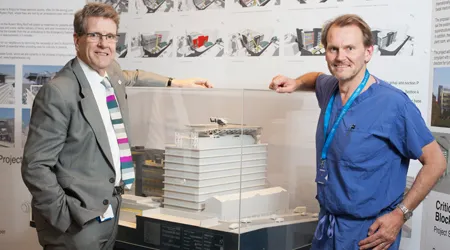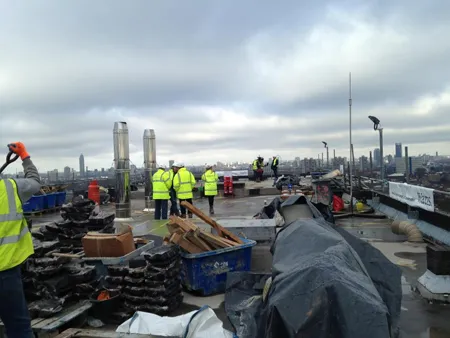The much-needed facility will cut the time it takes to transfer someone from the air ambulance (which currently has to land in nearby Ruskin Park) to the Emergency Department at King’s from 25 minutes to just five minutes. The Trauma Centre at King’s is one of the busiest in the country, and the new helipad will improve trauma care for the 5.5 million people living across south east London and Kent.
Thank you!
Thank you to everyone who donated and fundraised to help meet the cost of the helipad. From buying raffle tickets and making text donations, to running marathons and abseiling down the Golden Jubilee Wing at King’s – we’re so grateful for all your support. We’d also like to thank the County Air Ambulance Trust’s HELP (Helicopter Emergency Landing Pads) Appeal who made a generous donation towards the helipad.

'My second chance to live'
Suzanne had emergency surgery at King’s following a brutal, near-fatal attack. She was given a 50/50 chance of making it through – but fortunately the team at King’s saved her life and Suzanne has since fundraised for the helipad appeal to say thank you. She was part of the team that raised £60,000 by taking part in an abseil at King’s.
Suzanne was treated by Mr Rob Bentley, Director of Trauma at King’s, who reconstructed her skull after her attack. He says that the construction of the helipad represents a major step-forward for trauma in London, adding:
The new helipad at King’s will take about a year to build, and rise 50 metres above the ground on top of the hospital’s Ruskin Wing. The pad will be made of around 75,000 kg of aluminium and 100 tonnes of steel. It will be constructed off-site, and lifted into place when it's ready using one of the UK’s largest cranes.
